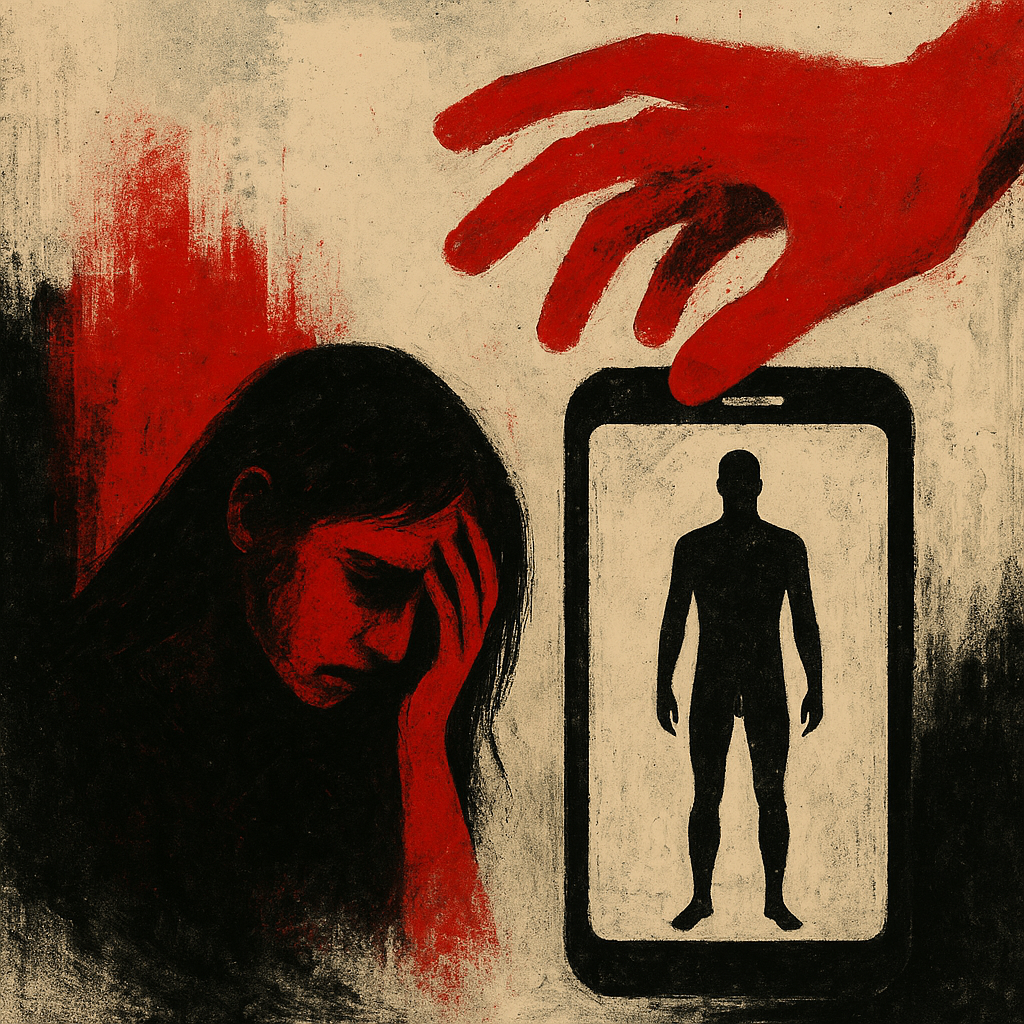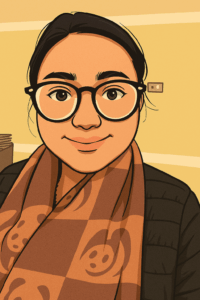-Binisha maharjan
When I was a teenager, I used Facebook and Messenger to connect with my family and friends. As a playful and innocent girl, I liked to share pictures and write statuses every now and then. It wasn’t the era of followers and follow-backs yet, but I still loved to dauntlessly post, share, and chat with my Facebook friends without any hesitation.
I vividly remember a day in my life when I was using Facebook on my father’s iPhone 6. I curiously went on to click the “Message Request” section of the app. I saw an unknown person who had messaged me. Thinking that it could be someone I know or a friend wanting to chat, I opened the message. To my horror, it was a disgusting, unsolicited nude picture sent by an unknown man. The phone dropped from my hands as I stood there, stunned and traumatized.
When I finally came to my senses, I picked it up and, without even glancing at his profile, blocked him immediately.
Raised in a male-centric household, I always saw my father and cousins treated superior to females in the house. This was no surprise for me, because – we live in a patriarchal society where domination of women by men is normalized. Here women are not only kept under surveillance, most of their acts (that goes against the established norm of patriarchal society) are questioned and they are turned into subjects. Because of this sometimes I wish to be born as a boy because no one would raise an eye or dare to say, “Keti manche bhayera mobile chalayepachi yestai huncha“. Though I never heard such criticism, I remained silent about the Facebook incident because I knew people would bombard me with questions then show me empathy and finally tag me with the notion of “keti manche vayara testo garnu hudaina!”.
I had only heard a few incidents of celebrities and influential people getting harsh comments and memes that distorted their mental health, and I had never realised as a simple girl, I would also have to face the same thing. That incident ruined my mental health and I was so disturbed for many days. I could not study, eat and function like earlier. I never had the courage to tell my parents, nor did I have close friends to share who would listen without any judgement. It hampered my school life and personality. As an adolescent, not knowing what to do. I thought I was left with only two options; to forget the incident and move on or to complain and take the shame thrown at me from society. At last, I choose to deactivate my account and stay quiet like nothing ever has happened to me.

I know many people reading this would say, being an educated girl she must speak for herself. However, at that time I was ignorant of what had happened to me. Only after very long, I got to know that it was digital abuse that I had faced. This lack of awareness in many places, makes predators find their victims easily and abuse them. And patriarchal society makes the victim believe it was their fault. Most of the victims are likely to be children, teenagers and women.
Later on, I got to know about cybersecurity laws and my own rights. I also came to know what I had faced back then was Technology-facilitated gender-based violence (TFGBV). I felt guilty for not knowing how to confront people due to shame, victim blaming ( As a child I thought my parents would blame me using mobile excessively). I was also very concerned about what my friends and family would think of me. After long it came to light that my friends would also get disrespectful messages regarding their clothes and bold appearance that too would be categorized as digital abuse.
These days, people normalize offensive behavior like sending unsolicited nudes as flirtation. If a woman does not respond, she is “uptight” or does not get it. The least some women do is delete and block them, which excites the abuser for more opportunities. Victims of such events face trauma, depression, and other psychological disorders. Little do they realize sending unsolicited nudes are NOT SEXY, ITS HARASSMENT. Unfortunately, this harassment not only disturb people’s peace but also leads to internalization of victim blaming
In a patriarchal society like Nepal, even if laws and regulations for such crime exists; it is more likely that the criminal gets bailed out in no time. The instability of government and lack of proper policy is becoming an advantage to such people. Since it is easier to escape police online, aggressors online are freely preying in no fear of getting punishment.
My experiences were not unique, there are fellows who are also fighting against digital abuse through their voices online, writing blogs and many organisations that advocate against cybercrimes and digital abuse and advocate digital consent. However, there might be very young people out there facing what I faced in my adolescent period and instead of fighting for their rights they might also be blaming themselves for the act of others. Hence, it is time for us to gradually bring the change via online and offline platforms.

Binisha Maharjan is a student pursuing an MA in English at IACER, Kathmandu. She is an aspiring content writer and digital marketer. She completed her undergraduate degree in Social Work from St. Xavier’s College. With a hopeful attitude towards life and all that it offers, she believes in the power of will and in making her own way.
